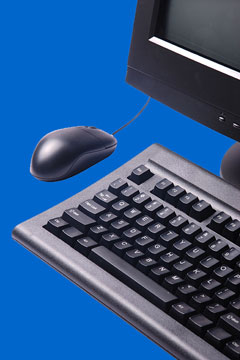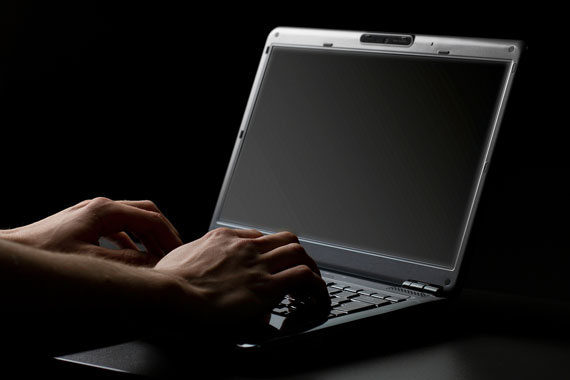Computer Information Guide
Chosen Sites > Computer Products and Services Guide
Auto
Business
Computer
Family
Finance
Garden
Gifts
Health
Hobby
House
Internet
Personal
Sports
Travel
 From the days of adding machines and typewriters to the present day, the
computer has revolutionized the way information is processed. First
developed during the early to mid-1900s, computers can process information
much faster and more accurately than human beings. Early mainframe
computers were large and expensive; they also required specially designed
rooms where temperature and humidity were carefully controlled.
From the days of adding machines and typewriters to the present day, the
computer has revolutionized the way information is processed. First
developed during the early to mid-1900s, computers can process information
much faster and more accurately than human beings. Early mainframe
computers were large and expensive; they also required specially designed
rooms where temperature and humidity were carefully controlled.
Over the years, miniaturization of electronic components and the use of integrated circuits, as well as the development of microprocessor chips, led to smaller, faster, and less expensive computers. Today, the ubiquitous personal computer has provided a remarkable amount of computing power for much of the world's population. In the United States, we now have computers on virtually every desk as well as laptops to accompany us everywhere else. With the Internet, we can use these amazing devices to quickly access a seemingly endless variety of information.
Recent Computer News
- Advanced Micro Devices confirms plans to make chips at TSMC Arizona
After Nvidia reaffirmed plans to make supercomputer chips at TSMC's Arizona factory, global chipmaker Advanced Micro Devices chimed in to confirm its own deal with TSMC in Phoenix.
Greg Barr. American City Business Journals. Wednesday, 16 Apr 2025 00:05:07 +0000. - US moves ahead on tariffs with investigations into computer chips and pharmaceuticals
The Department of Commerce posted notices about the probes on the Federal Register, seeking public comment.
Associated Press. San Diego Union Tribune. Tuesday, 15 Apr 2025 14:39:12 +0000. - Are Computer and Technology Stocks Lagging Brother Industries (BRTHY) This Year?
Here is how Brother Industries Ltd. (BRTHY) and Baidu Inc. (BIDU) have performed compared to their sector so far this year.
Zacks Equity Research. Zacks. Tuesday, 15 Apr 2025 13:40:10 GMT. - Visit this Computer news page for more extensive news coverage.
Computers are electronic devices that can collect, store, process, and disseminate information. A computer consists of a system board (or motherboard) and a central processing unit (CPU), as well as volatile memory chips (RAM) and non-volatile storage devices such as disk drives. A computer also requires peripheral devices such as a mouse, keyboard, and scanner for collecting data and a monitor, printer, speaker, or projector for disseminating information.
Computer programmers instruct computers, by means of a series of precise instructions called software, to process data in a specified manner. Using software programs, raw data can be converted into valuable information. This information can be used to increase productivity, enhance the quality of products and services, and gain competitive advantages. However, as computers have become more widely interconnected, via the Internet, privacy and security concerns are becoming a major issue for the computer industry.

The IEEE Computer Society features extensive resources about computers and computing, and this page lists a selection of useful information resources for computer professionals.
- ASCII Codes
US ASCII characters, ASCII codes, and ASCII character table.
www.ASCIICodes.us - CAD Software
Autocad and TurboCAD CAD software from AutoDesk and IMSI.
www.CADSoftware.us - Color Laser Printers
HP color laser printers and Xerox color laser printers
www.ColorLaserPrinters.us - Color Printers
Pros and cons of color inkjet printers and color laser printers.
www.ColorPrinters.us - Computer Cables
Computer cables, pc accessories, and audio/video cables.
www.ComputerCables.us - Computer Monitors
Flat panel LCD monitors, CRT monitors, LCD and CRT display manufacturers.
www.ComputerMonitors.us - Computer Printers
Computer printer guide and manufacturer directory.
www.Computer-Printers.us - Computer Supplies
Computer hardware and software, upgrades, supplies, and accessories.
www.ComputerSupplies.us - Computer Viruses
Computer virus guide and anti-virus software directory.
www.ComputerViruses.us - Data Backup
Disk and tape backup systems, media, and software solutions.
www.DataBackup.us - Inkjet Ink
Black ink and color ink cartridges for inkjet printers.
www.InkjetInk.us - Laptop Batteries
Laptop computer batteries, chargers, and accessories.
www.LaptopBatteries.us - Large Format Printers
Large format printers for technical and graphics professionals.
www.LargeFormatPrinters.us - Multifunction Printers
Multifunction printers and all in one machines.
www.MultifunctionPrinters.us - Photo Printers
Photo-quality printers for personal and professional use.
www.PhotoPrinters.us - Printer Toner
Printer toner cartridges for your laser printer.
www.PrinterToner.us